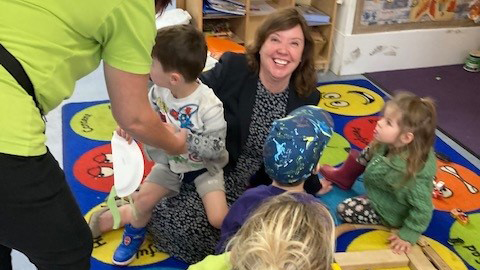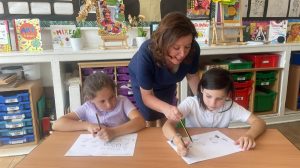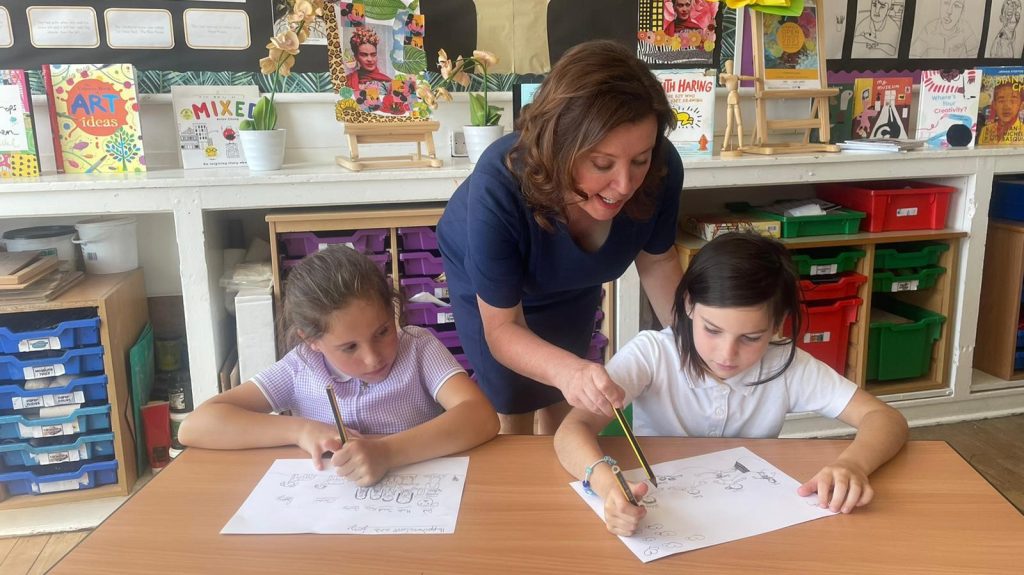
At the end of a busy term, this post is a chance to share what my team and I have been up to over the last few months and reflect on progress made.
My Attendance Audit has continued apace. This is the deep dive project my team and I have undertaken with ten local areas in order to understand school absence, talk to children who are missing from school, and identify solutions that support children to be in school. In June, I published the findings of the Audit, outlining six key ambitions to ensure every child is accounted for and supported. My team has also undertaken some fascinating new analysis of individual children’s attendance, which found that if children don’t come to school in the first week of the new school year then they are much more likely to have lower attendance levels overall. I believe that school is the best place for children to be, and that’s why I am aiming for 100% attendance next term. Because if we don’t aim for that, which children do we consider should be left behind? As part of this drive, I published an assembly template that primary schools can use to support year 6 pupils making the transition to ‘big’ school in September. I have also collected a range of resources for children, parents, local authorities, and schools on my Back into School web pages.
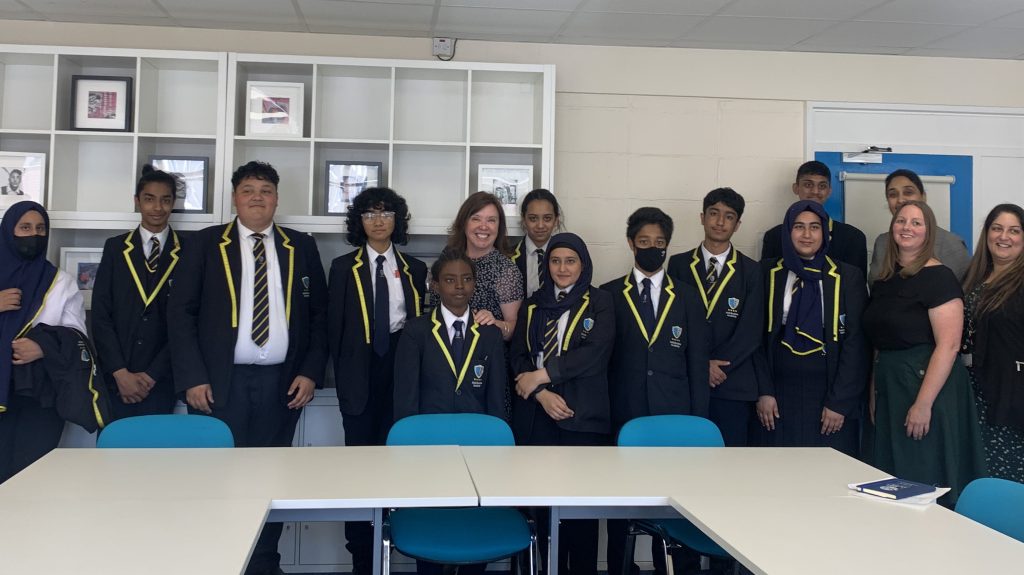
One of the biggest reasons children were missing from school was because they had an unmet Special Educational Need/Disability (SEND). I will shortly be publishing my response to the Government’s SEND Green Paper consultation, aiming to put children’s voices at the heart of the Government’s plans to reform SEND provision.
Some children struggle to attend school because of mental health problems, and the number of children experiencing mental health problems has grown sharply since the pandemic. In fact, this was the biggest issue children worried about in The Big Ask, the largest ever survey of children which I ran last year. My team and I have therefore been out and about in May and June talking to children about how they feel mental health problems could be prevented and what support they need, and I have published the findings in my response to the Government’s Mental Health Action Plan. This month, I visited Alder Hey Children’s Hospital in Liverpool to discuss their approach to children’s health and wellbeing, and visited their new mental health ward. Mental Health is a top priority for me following on from The Big Ask, and I will continue to push for more action to prevent mental health problems in children and ensure that when problems do arise, children get the right support, in the right place, at the right time.
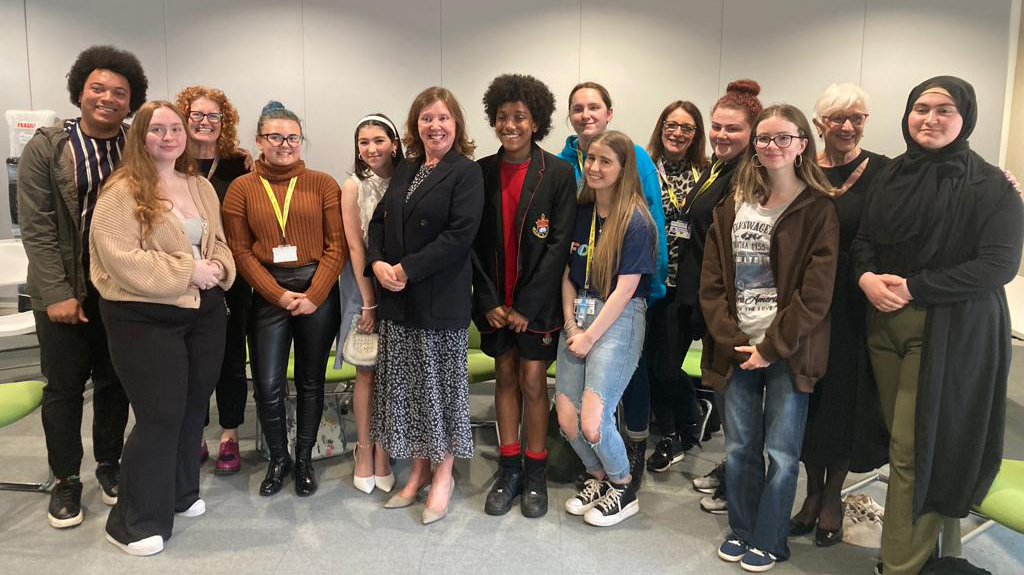
The very best start in life for a child is having a loving and supportive family around them. In The Big Ask, children wrote about how important their families are to them, families in all their forms. That’s why I was delighted when the Government commissioned me to undertake an Independent Review of the family. This term, my team and I have been visiting children and families to hear their opinions on family life for the Review. The Review is informed by a comprehensive research programme including: new analysis of The Big Ask’s findings, new quantitative and qualitative research and a literature review. We have also run a Call for Evidence, which we are now assessing, and Calls for Action so that everyone can have their say. Over the past couple of months, we have been running a series of roundtables with policy-makers, frontline practitioners and research analysts to help inform the Review. The findings will be published this autumn.
As part of the Family Review, I particularly want to hear the voices of children in different kinds of families – including those who have been adopted or are being looked after by relatives, and children in care. Championing the needs of children in care is an absolutely core element of my role and this term my team and I have hosted visits from care leavers, children in kinship care arrangements and unaccompanied asylum-seeking children to hear their views on the care system and their lives overall. My Help at Hand team have been hard at work supporting individual children living in a variety of places, including those in foster care, children’s homes, in custody, in special schools, mental health hospitals and hostels. In My Opinion (IMO), my digital platform for teenagers in care and care leavers has also been busy with a variety of new posts on careers, recipes, and posts on personal experiences of care. I was delighted to be able to talk about my work with children in care and care leavers at my annual accountability session with the Education Select Committee and to host the ‘It’s our Care’ day in Parliament organised by an excellent group of children’s charities. I want to see more discussion in Parliament about how we can support these children and I am pleased to see the Education Committee undertaking more inquiries into matters affecting looked after children. This term, I also responded to the publication of the Independent Care Review and the National Panel report into the tragic cases of Arthur Labinjo-Hughes and Star Hobson. I am determined to work with Government to implement the reforms needed so that we keep children safe, and so that every child in care has a loving and stable upbringing.
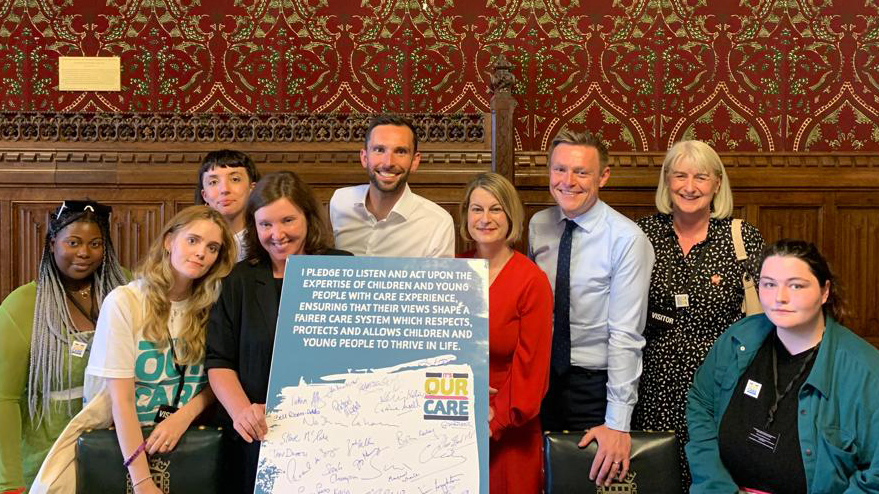
Children in care share the same ambitions in life as their peers – the top future priority for all children in The Big Ask was a good job or career. Work is therefore another core pillar for me. One recent highlight of my work in this area was the publication of an interactive quiz for children featuring over 50 career profiles of role models using maths or maths skills in their jobs. My team has also dug deep into the findings of The Big Ask to explore how children want to work in green jobs in the future – children’s passion for a Better World shone through. This includes building a fairer society for children from all walks of life. This term, I shone a light on the experiences of children from Gypsy, Roma and Traveller (GRT) communities as part of GRT History month.
Children want to be part of their communities. Earlier this month, I spent a morning meeting young people who have contributed to Liverpool’s UNICEF Child Friendly-City Programme. It was wonderful to see children so passionate about their community. I was also delighted to share children’s excitement in celebrating the Queen’s Platinum Jubilee and major sporting events like Wimbledon and the Euros this summer.
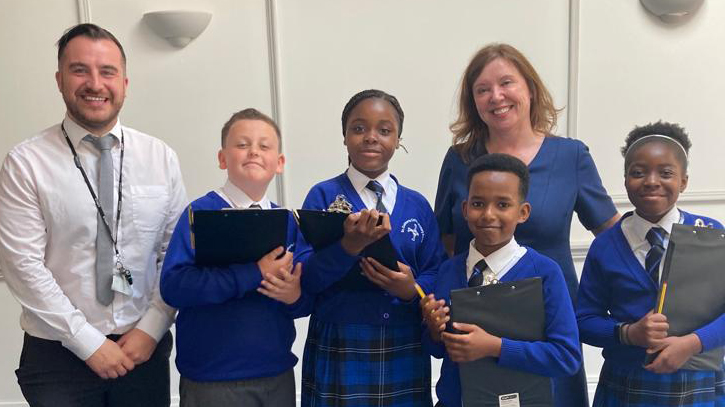
Children need safe spaces to play in their communities, and online. In May, I gave evidence to a Committee on the Online Safety Bill. I also wrote about the importance of robust age assurance systems to protect children from porn sites or harmful experiences on social media. I believe strongly that this Bill is needed to keep children safe online and I will continue to work to ensure children’s voices are at the heart of the debate on online safety.
Children also need to be safe when they go out and about, and that’s why I am also working to ensure the draft Victims’ Bill recognises the specific needs of children. In June, I gave evidence to the Justice Select Committee on the draft Bill to make this point.
All the pillars of my work as Children’s Commissioner have one thing in common: they are about supporting all children to have a good childhood and a successful adulthood, and ensuring that children’s voices are at the heart of Government and public policy. My team and I will continue to work hard over the summer and beyond to deliver for children.
